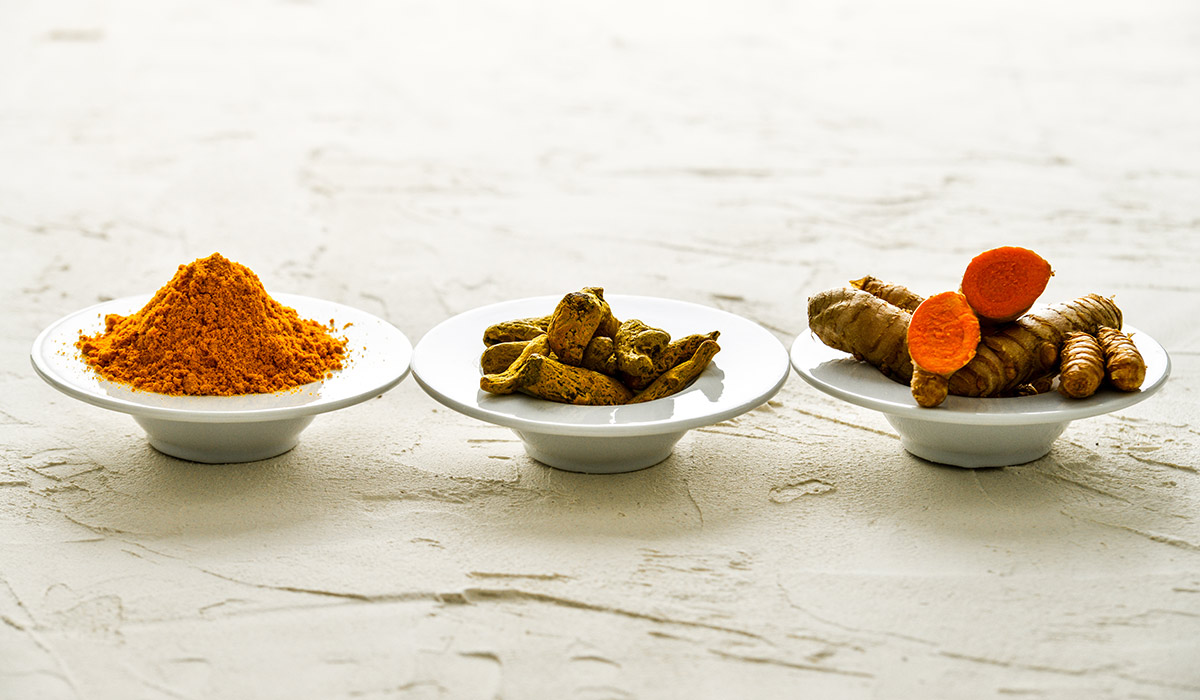CURCUMIN VS TURMERIC: WHAT’S THE DIFFERENCE?
With more and more people opting for a healthy lifestyle, there is much focus on learning about the ‘science’ behind various ancient herbal remedies and ingredients that are still popular in modern times.
Ongoing research has shed light on the many compounds found in herbs and spices and their benefits leading to the extraction of such compounds to be consumed in isolation. There is much debate on which is the better option for consumption and this article will focus on the debate on curcumin vs turmeric.
What is Turmeric?
Turmeric is a flowering plant found in abundance in Southeast Asia and its vibrantly yellow root has been used as a flavor enhancer, coloring agent, and in ayurvedic and Chinese medicine for thousands of years. It is used in many cuisines as well as beverages.
Turmeric Health Benefits
Turmeric is known to have antiseptic, antibacterial, anti-inflammatory, choleretic, and carminative properties. Turmeric can be consumed fresh, dried or in its powder form. Read more about what turmeric does to your body.
What is Curcumin?
While the turmeric root has been used in many forms for numerous ailments, it is only findings of ongoing research that have been able to identify the compounds that make it beneficial to the wellbeing of people. Therefore, curcumin is a bioactive curcuminoid found in the root of the turmeric plant. Turmeric contains only 2 – 9% bioactive curcuminoids of which approximately 75% is curcumin. Researchers believe that curcumin is the reason behind the plant’s many benefits. The extraction of curcumin is a complicated process, but researchers say that supplements made from curcumin have a higher percentage of antioxidants than in its natural form.
Curcumin Benefits for your Health
Curcumin may reduce the risk of heart disease, may help in treating Alzheimer’s disease and could also alleviate the symptoms of depression.
Similarities between Curcumin and Turmeric
Both turmeric and curcumin have low bioavailability which makes it difficult for the body to absorb their nutrients. This is due to its low water solubility and therefore both need to be combined with another source to ensure absorption. One is to mix it with fats or oils as would be the case in cooking. As a beverage adding turmeric to milk (dairy or dairy alternatives such as coconut or almond milk) would result in assisting the curcumin to bind with the fat cells. Piperine, a component in black pepper, also increases bioavailability and is often included in turmeric or curcumin supplements.
Which is better?
Both turmeric and curcumin supplements have advantages and will have to be judged case by case. Curcumin is the most active form of nutrients and will suit those who are in great need of it which include patients with definite ailments. However, turmeric in its natural form or powders take the whole-foods approach so that it retains the nutrients as nature intended it to be. Some experts believe that nutrients should be derived from whole foods as the other nutrients within the particular food affect how our bodies should best absorb them.
Whichever form is chosen, the anti-inflammatory, antioxidant, antiseptic and antimicrobial qualities of both turmeric and curcumin can assist in reducing inflammation, improving immunity, enhancing heart and brain health and helping with weight management.
A sachet of Pure Turmeric Brew available from Nature’s Rare is packed with organic Ceylon turmeric with the added component of organic black pepper which guarantees the absorption of curcumin. Just add it to a cup of warm tea, add a sweetener of choice and enjoy the benefits of turmeric in your healthy lifestyle.

